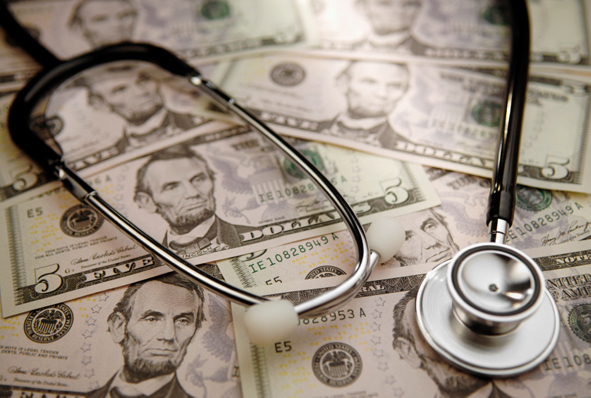Short-Term Medicaid Rate Hike Breeds Long-Term Concerns
A central provision of the health care reform bill will be limited by its short duration and narrow terms of coverage.
Jul 31, 202052.2K Shares768.2K Views
It’s been trumpeted as one of the key elements in the Democrats’ plan to expand access to health care for tens of millions of vulnerable Americans.
Yet a provision of the newly passed health reform bill that raises doctors’ payments under Medicaid is both temporary and limited in the scope of medical services it covers. The restrictions have left a number of health care advocates and doctors’ groups concerned about patients’ long-term access to care under the reform legislation.
[Congress1] The concerns are hardly trivial. The Democrats’ health reforms rely heavily on the successes of Medicaid, which will be expanded to include all non-seniors earning up to 133 percent of the federal poverty level (about $24,350 for a family of three). The bill is estimated to cover 32 million uninsured Americans over the next decade, and roughly half of those folks would fall into the Medicaid program.
Yet Medicaid rates are so low that many doctors refuse to see patients insured by the program. Indeed, doctors treating Medicaid patients in 2008 were paidjust 72 percent of what Medicare paid for the same services, according to analysts at the Urban Institute, a Washington-based policy shop. As a result, only about 40 percentof physicians accept all new Medicaid patients, versus 58 percentfor Medicare beneficiaries, according to a 2009 studyfrom the Center for Studying Health System Change, which randomly surveyed more than 4,700 physicians.
Recognizing that problem, House Democrats passed legislation in December hiking certain payments under Medicaid to at least the level paid by Medicare, the federal program for seniors and the disabled. The bill initially passed by the House of Representatives allocated $57 billion to those rate increases over 10 years — a cost that Democrats more recently rejected as too high.
Instead, the health reconciliation bill signed by President Obama this week hikes Medicaid rates only for the years 2013 and 2014. The federal government would pay the entire tab of the increase, which the Congressional Budget Office estimateswill cost $8.3 billion. From 2015 onward, it would fall to states to pick up the difference in cost — a tough sell in a frail economy, when state budgets are already strapped.
There are other concerns. The rate hikes, for example, apply only to some primary care and pediatric services. Emergency room and other critical care services wouldn’t be subject to the increase. Nor would counseling, disability examinations, services delivered over the phone or a long list of other procedures.
Dawn Horner, a health policy expert at Georgetown University’s Center for Children and Families, said the Democrats’ reform bill goes a long way to improve access to care for Medicaid patients, “but it would be better if the Medicaid increases were across the board.”
That’s not the only problem. Because the bill ties the Medicaid pay hikes to the senior-centered Medicare program, procedures not covered by Medicare won’t be included. That stipulation has led some children’s care providers to worry that youngsters on Medicaid won’t have access to services specific to their age group. The flushing of kids’ ears, for example — a procedure common in pediatricians’ offices — wouldn’t qualify for the enhanced rate.
Providing some comfort to health care advocates, CBO has projected that some federal funding will go toward the Medicaid pay hike for a few years after 2014 — indicating that some states would likely phase out the higher rates instead of dropping them immediately, even if they have to cover a percentage of the costs themselves. By 2019, however, CBO projects that, without additional federal help, all states will have abandoned the increased payments, putting Medicaid patients in the same uncertain spot they were in prior to the reforms.
The concerns among some powerful stakeholders in the health care arena — including governors, doctors and patient groups — mean that there will be plenty of pressure on Congress to prevent the Medicaid pay increases from evaporating in 2015.
“It will be a fight … to extend it,” William Vaughan, a health policy consultant for Consumers Union, a consumer advocacy group, wrote in an email. “And that’s a fight worth making!”
In the meantime, though, patient advocates and doctors’ groups are celebrating the increase they got.

Rhyley Carney
Reviewer
Latest Articles
Popular Articles
